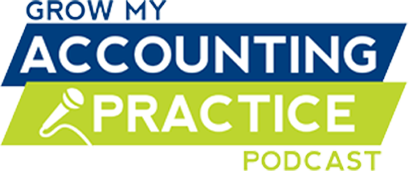Man, do I get hassled about the Profit First formula.
Let me be clear, I do believe following the GAAP (Generally Accepted Accounting Principles) is important so that when the time comes, you are prepared to submit taxes, financial statements for investors. However, using the GAAP as your primary accounting method is the wrong way to grow a hugely profitable business.
Replacing GAAP to track spending, enhance cash-flow management and assess the health of your company makes sense, you may just be afraid to go against what “everyone knows.”
Hot tip/reminder – Just because something appears to be true and “everyone” goes along with it, doesn’t mean it makes sense – and it doesn’t make it true.
The GAAP (Generally Accepted Accounting Principles) formula for determining a business’s profit is Sales – Expenses = Profit. It is simple, logical, and clear. While logically accurate, it doesn’t account for human behavior. In the GAAP formula profit is a leftover, something that is hopefully a nice surprise at the end of the year. Alas, the profit is rarely there and the business continues on its check-to-check survival.
With Profit First, you flip the formula to Sales – Profit = Expenses. Logically the math is the same, but from the standpoint of the entrepreneur’s behavior, it is radically different. With the Profit First formula, you take a predetermined percentage of profit from every sale first, and only the remainder is available for expenses.
Profit First encourages you to continue “bank balance accounting” by first allocating money to profit (and other accounts) so that the actual portion of deposits that are available for expenses and you automatically adjust spending accordingly.
This principle doesn’t try to change your habits (that is nearly impossible to do), Profit First works with your existing habits. By first allocating money to different accounts, and then removing the temptation to “borrow” from yourself, your business will become fiscally strong and you will benefit from regular profit distributions.
Let’s get into some details:
- Profit First Allocation: In traditional GAAP accounting, profit is typically seen as what’s left over after all expenses are paid. But when revenue is allocated into different bank accounts based on predetermined percentages for profit, owner’s pay, taxes, and operating expenses, it ensures that profit is not an afterthought but a fundamental aspect of your financial management.
- Behavioral Approach: We’re human, and our habits determine our outcome. By setting up automatic allocations and creating clear boundaries for spending, Profit First helps you develop healthier financial habits.
- Simplicity and Clarity: GAAP accounting can be complex and overwhelming, especially for entrepreneurs without a background in finance. The Profit First methodology breaks down financial management into straightforward concepts and actionable steps, making it easier for business owners to implement and understand.
- Focus on Cash Flow: Prioritizes cash flow! When you ensure your business always has enough funds set aside for profit, taxes, and owner’s pay, it helps you avoid cash flow crises and maintain financial stability.
- Real-Time Monitoring: Traditional GAAP accounting often involves reviewing financial statements periodically, usually on a monthly or quarterly basis. Real-time monitoring of finances through regular check-ins with Profit First bank accounts. This provides you with up-to-date information on your financial health and enables you to make proactive decisions to stay on track with your financial goals.
What are you waiting for? If you haven’t already, flip that accounting model and make profit a habit! Your company, employees, clients, heck your dog, will thank you!
Wishing you good health and wealth, always!
-Mike
Join me on the journey:
Last I saw there was a discount! Get Profit First for you or a friend at Amazon, Barnes & Noble, or any of your favorite booksellers.
Profit First works with your existing habits. By first allocating money to different accounts, and then removing the temptation to “borrow” from yourself, your business will become fiscally strong and you will benefit from regular profit distributions. – MM
The secret to financial success is to pay yourself first – MM










